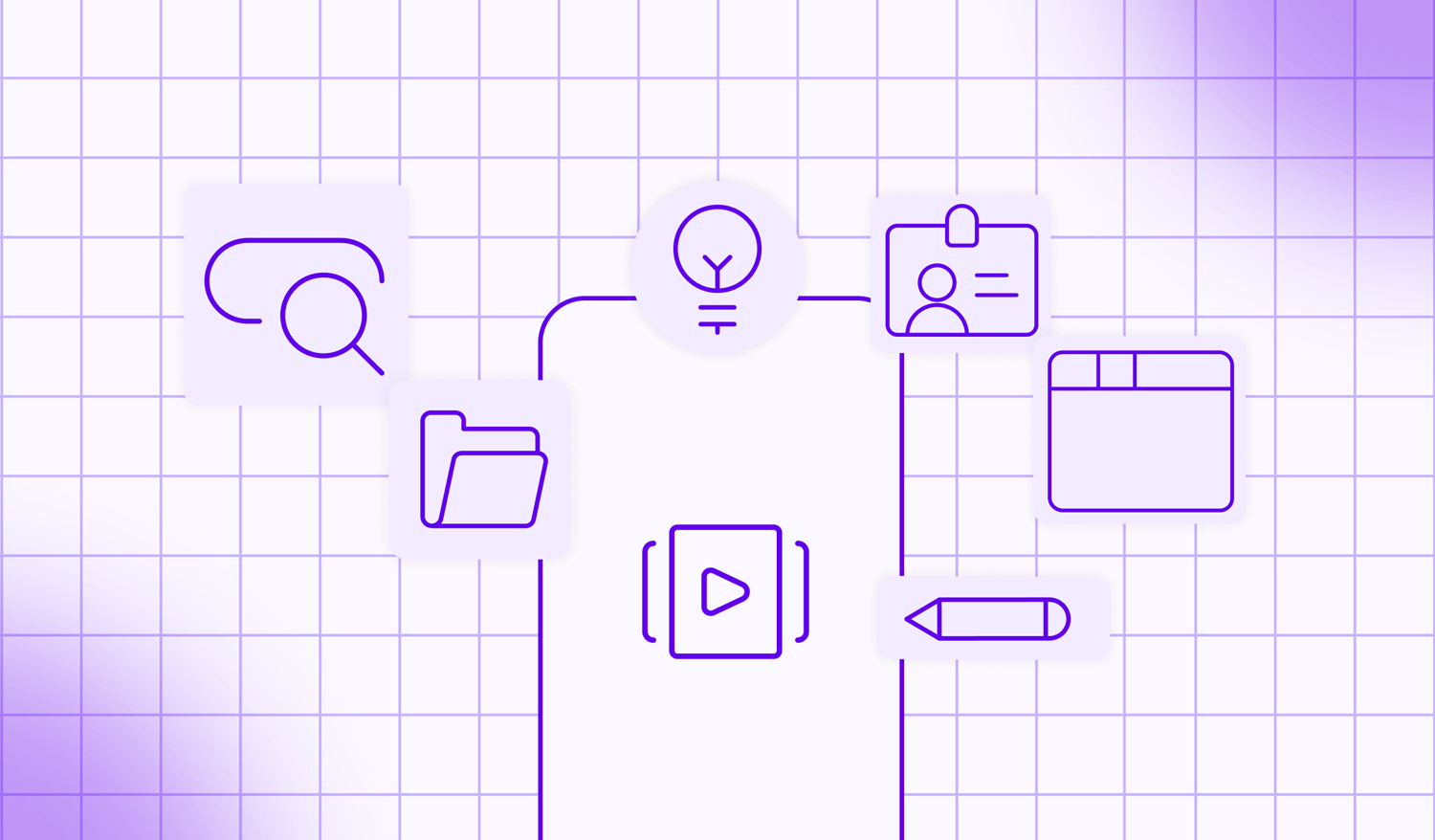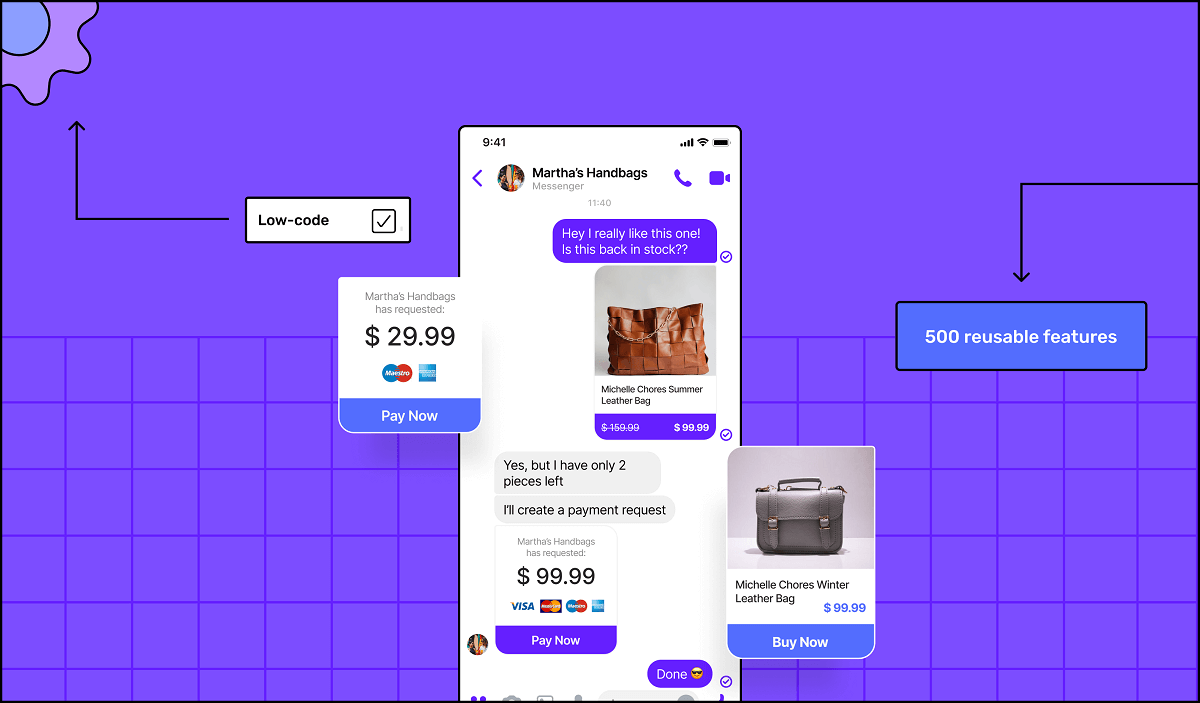A recession is looming. Everyone from the Wall Street Journal to Wired are talking of how an economic downturn is approaching and how it’s bound to affect the tech industry.
Recessions mean budget cuts for most businesses - and your enterprise IT team is likely to be hit, too. But there are also numerous other global uncertainties to deal with.
The current global shortage of full-time developers will increase from 1.4 million in 2021 to 4.0 million in 2025. Not only are you having to fight tight budgets, but there’s greater competition for IT resources. This high demand translates to high salaries, which quickly slash your team's budgets even further.
But it's not all doom and gloom. While your IT teams have a lot to contend with, there are some steps you can start taking now to prepare yourself for the uncertainty ahead.
Gartner Forecasts the worldwide low-code development technologies market to grow 20% in 2023. It's a booming industry because low-code tech helps take some of the pressure off of internal IT teams. In fact, Gartner predicts that by 2026, developers outside formal IT departments will account for at least 80% of the user base for low-code development tools, up from 60% in 2021.
Want to start your app project with us?
Book a demoSpeak with one of our product experts today.
By proceeding you agree to Builder.ai’s privacy policy and terms and conditions

With an impending worldwide developer shortage to complement the looming global recession, AI-powered development led by low-code technology could be a way for you to navigate the current headwinds and come out of the recession on top. This article will look at how intelligent development solutions are not only a way of the future, but also a way for businesses to combat recession.
How your business can beat the looming recession
With all the major developed countries including the United States and most of the EU bracing for economic hardship, you need to be looking ahead to how you can come out the other side unscathed.
In October 2022, chief economist of the International Monetary Fund, Pierre-Olivier Gourinchas, mentioned in an IMF blog, “the 2023 slowdown will be broad-based, with countries accounting for about one-third of the global economy poised to contract this year or next. The three largest economies, the United States, China, and the Euro area, will continue to stall.”
No major economy will be immune, so you have to put a strategy in place now. Let's take a look at some of the ways you can mitigate the impacts of a recession on your business.
How do you keep your business ahead of the curve even when the market slows down?
The survival and sustainability of your business during the coming years will depend on your capacity to embrace technology. Through tech, you can make your business recession-proof and secure your future.
Not only will it help you in the immediate future by giving you the opportunity to quickly pivot and meet customers' needs during the recession, but it will also give you a better position for the long term.
Embracing technology now will set you up to be agile and quickly deliver products to market in the coming five to ten years. This will help you position yourself ahead of your competitors who stick with old legacy technology that slows them down.
But with a looming recession, you might be expecting budget cuts, so how can you finance those new digital initiatives that will place you ahead of the curve? While budgets will likely be cut, in IT, you might see that funding doesn't diminish as much as you expect. In 2022, 70% of CFOs expected digital initiatives to get more funding despite the looming recession and costs being cut across other areas of business.
This is because digital initiatives are delivering incredible value for businesses which makes them well worth the continued investment. For example, enterprise apps for internal processes such as inventory management, bookkeeping, and shift schedules have become incredibly popular over the past few years. They have been proven to help enterprises increase efficiency and reduce costs – exactly what every CFO wants to see in these uncertain economic times.
And app development does not need to be that complicated. You don’t necessarily have to start hiring new developers with new skills to get your app out of the gate. AI-powered app development is one tech avenue to explore that can quickly get you digital initiatives up and running without the time-consuming and expensive route of hiring internal app developers.
What is AI-Powered app development?
Artificial Intelligence and Machine Learning are revolutionising every stage of the Software Development Life Cycle (SDLC). Now, software developers can use AI to write and review code, detect bugs, test software, and even optimise development projects, by creating scalable and efficient workflows to drive productivity, reduce time-to-market, and save money.
AI-powered software development can help businesses develop the apps they need, exactly how they need them, without the technical knowledge of traditional app development.
Businesses in all kinds of markets but especially those in niche highly innovative markets might find that out-of-the-box solutions available for app development are lacking the full features they need. This is where AI comes in and can help you develop a custom app with the specific functionalities required for your business.
How AI-Powered software can help you recession-proof your business
The introduction of AI-powered tools provides countless benefits. However, the main value is often found in the efficiency that they can bring.
According to a study by Forrester, AI has the greatest potential to significantly improve software development across the fields by making it faster, more efficient, error-free, and more reliable. By including AI as a part of your development team, you can empower, rather than replace your coders.
By avoiding repetitive programming tasks these AI tools are making software developers more productive and effective, enabling them to maximise their productivity by focusing on more valuable and higher-level activities and less on administrative work.
All of this is a win-win for your IT teams, allowing you to increase efficiency and reduce costs at the same time, which your CFO will be glad to hear.
How can your business use AI-powered software development to scale up?
There are a lot of ways you can implement AI in your software development. But here are a few of the most obvious and beneficial.
Reduced effort to test an idea
The tools for real prototyping allow business users to switch from sketch to app without the need to develop the imagined UX. This allows for testing in a very short time and with zero IT effort.
Reduced time to market
Real prototyping and AI smart assistants speed up the development phase. The developer receives a solid and more detailed requirement and the time dedicated to development is then reduced thanks to AI-based code prompters and optimisers.
Higher-quality software
Thanks to AI-powered testing tools it is possible to be more thorough with your testing. You can reduce the writing time of test cases, increase the coverage of use cases and self-generate input data.
Examples of AI-powered software development
If you're not already convinced of the power of AI in software development, then these examples may sway you.
Goldman Sachs
Goldman Sachs uses the AI-based tool Diffblue Cover to generate unit tests for legacy software, leading to a 180× increase in the speed of writing tests for a core back-end application.
Atlassian
Atlassian uses AI-based tools by Amazon Web Services to improve code performance by identifying code paths that demonstrate poor CPU2 utilisation or latency.
Careem
Careem, a Middle Eastern rideshare app, is using targeted facial recognition AI to improve security and confirm that drivers are who they say they are.
It’s also using AI to provide users with a highly accurate estimated time of arrival, taking into consideration factors such as local weather, prayer times, and even Iftar times during Ramadan.
BBC
BBC Click Live used Builder.ai to create an app in less than five weeks that would make it easy for people to sign up for events and interact with each live show.
Becoming recession-resistant with AI app development
AI no-code and low-code platforms can help your IT team address many of the challenges that a recession will present. With faster development you can quickly show you value within a business by developing apps that increase efficiency, automate tasks and align with business goals.
Types of enterprise mobile apps
This all sounds great, right? So what type of app should you be developing for your enterprise? Well, that will depend on your business goals. But you can start by looking at the types of internal apps many enterprises use. They can broadly be broken down into three categories.
Mobile apps for internal use
Often these are the simplest to develop because they require fewer features. For example, you can build an app to be used as a messaging tool to improve communication between team leaders and developers and get quick updates on trivial parts of a project.
Departmental mobile apps
These apps often have the goal of increasing productivity in specific departments. For example, an HR management application can help HR departments quickly resolve employee issues and increase efficiency.
Enterprise-Grade mobile apps
These are the most complicated to develop as they connect the entire company to a private network so all departments can collaborate. But they can be hugely beneficial as they can significantly increase steps in a workflow, such as when an employee contacts the CEO or downloads a file.
Benefits of an enterprise mobile app
Whether you are going for a simple internal app or an enterprise-grade app for the entire company, or something in between, there are some common benefits that business apps will bring you.
Better data management workflow
Cluttered data can create all kinds of business complexities. With an app you could develop real-time processing, share data in real-time, and ensure data transparency.
Cloud technology also allows data to be shared among all employees, stakeholders, and managers, helping to improve work efficiency.
Increase in productivity
You can use an app to automate tedious and repetitive tasks. This then increases productivity by reducing the administrative tasks your team needs to do and allows them to focus on more complex and urgent issues.
Safety
Deploying business applications on employees’ mobile devices put company data at risk. In contrast, with internal apps, employees need to access the app marketplace and transmit all data securely without putting company information at risk.
Prepare yourself for the future with Builder.ai
Ready to fast-track your business's digital initiatives and position yourself to weather the looming storm? Book your demo with Builder.ai today to explore the options available for app building with no code required - allowing you to speed up time to market and focus on the growth of your business.
Alexandra is the Content Lead at Builder.ai. With 4+ years of experience across B2B tech marketing and SaaS solutions, Alexandra specialises in creating accessible AI and Machine Learning content for enterprise. She has a BA in English Literature and Creative Writing from Royal Holloway, University of London.












 Facebook
Facebook X
X LinkedIn
LinkedIn YouTube
YouTube Instagram
Instagram RSS
RSS


